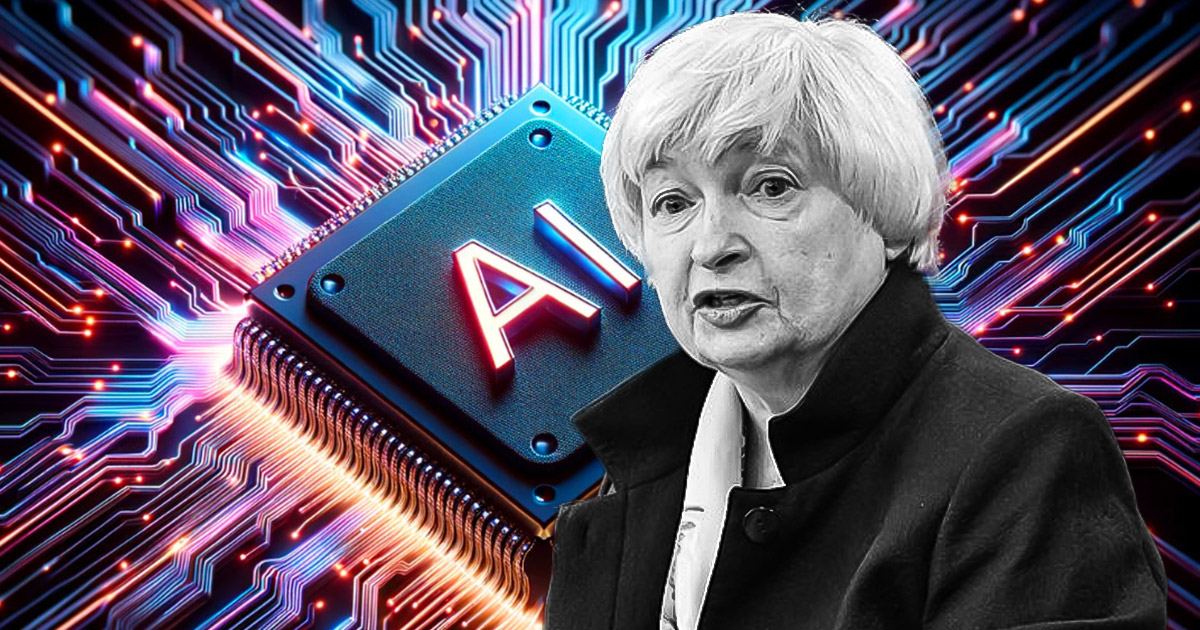
Financial Stability and AI: An In-Depth Analysis
By: TOGRP
June 8, 2024 4:57 AM / 0 Comments ZentaPost In Brief News AI International News
As we venture further into the digital age, artificial intelligence (AI) continues to permeate various aspects of our lives, from consumer applications to complex financial systems. Recently, Treasury Secretary Janet Yellen highlighted the potential financial stability risks posed by AI, sparking a widespread discussion on how AI could impact our financial landscape
The Rise of AI in Finance
What is AI?
Artificial Intelligence, or AI, refers to the simulation of human intelligence in machines that are programmed to think and learn like humans. The use of AI in finance has been revolutionary, offering efficiencies and capabilities that were once thought impossible.
How is AI Used in Finance?
- Algorithmic Trading: AI powers complex algorithms that can execute trades at superhuman speeds.
- Risk Management: AI systems analyze vast amounts of data to identify potential risks and suggest mitigations.
- Customer Service: Chatbots and automated advisors provide customer support and financial advice 24/7.
Secretary Yellen's Concerns
Treasury Secretary Janet Yellen has expressed concerns that AI could pose risks to financial stability. The integration of AI in financial systems, while beneficial, also introduces complexities that could amplify systemic risks in times of stress.
Potential Risks
- Opacity of AI Systems: The inner workings of AI algorithms are often opaque, making it difficult to predict their behavior in crisis situations.
- Speed and Automation: AI can execute transactions rapidly, which might lead to abrupt market movements without human intervention.
- Interconnectedness: AI systems are interconnected, and a glitch in one system could potentially spread to others, creating a cascade effect.
Regulatory Perspectives
What Can Be Done?
Regulating AI in finance involves a delicate balance between fostering innovation and mitigating risk. Here are some regulatory suggestions:
- Transparency and Explainability: Regulations could require AI systems to be more transparent about their operations and decision-making processes.
- Stress Testing: Regular stress tests and simulations could ensure systems are robust enough to withstand chaotic market conditions.
- Monitoring and Oversight: Continuous monitoring by regulatory bodies can help catch and address issues early.
The Global Impact
AI's Role in International Finance
AI's influence isn't limited to domestic markets; it plays a significant role in international finance, affecting everything from global stock exchanges to foreign exchange rates.
Challenges and Opportunities
While AI presents challenges, it also offers opportunities for increased efficiency and new financial products and services that could bolster economic growth worldwide.
Conclusion
The integration of AI into the financial sector presents both unprecedented opportunities and significant risks. As highlighted by Treasury Secretary Yellen, it is crucial for policymakers, regulators, and the industry to work together to ensure that the deployment of AI technologies advances safely.
FAQs After the Conclusion
-
What is artificial intelligence (AI)?
- AI is the simulation of human intelligence in machines designed to think and learn like humans.
-
How is AI used in the financial sector?
- AI is used for algorithmic trading, risk management, and customer service in the finance sector.
-
What are some risks associated with AI in finance?
- Risks include the opacity of AI systems, the rapid pace of transactions, and the potential for interconnected system failures.
-
What can regulators do to mitigate AI risks in finance?
- Regulators can implement rules for transparency, conduct stress tests, and maintain vigilant oversight.
-
How does AI affect international finance?
- AI impacts international finance by influencing global markets and creating new financial technology innovations.
